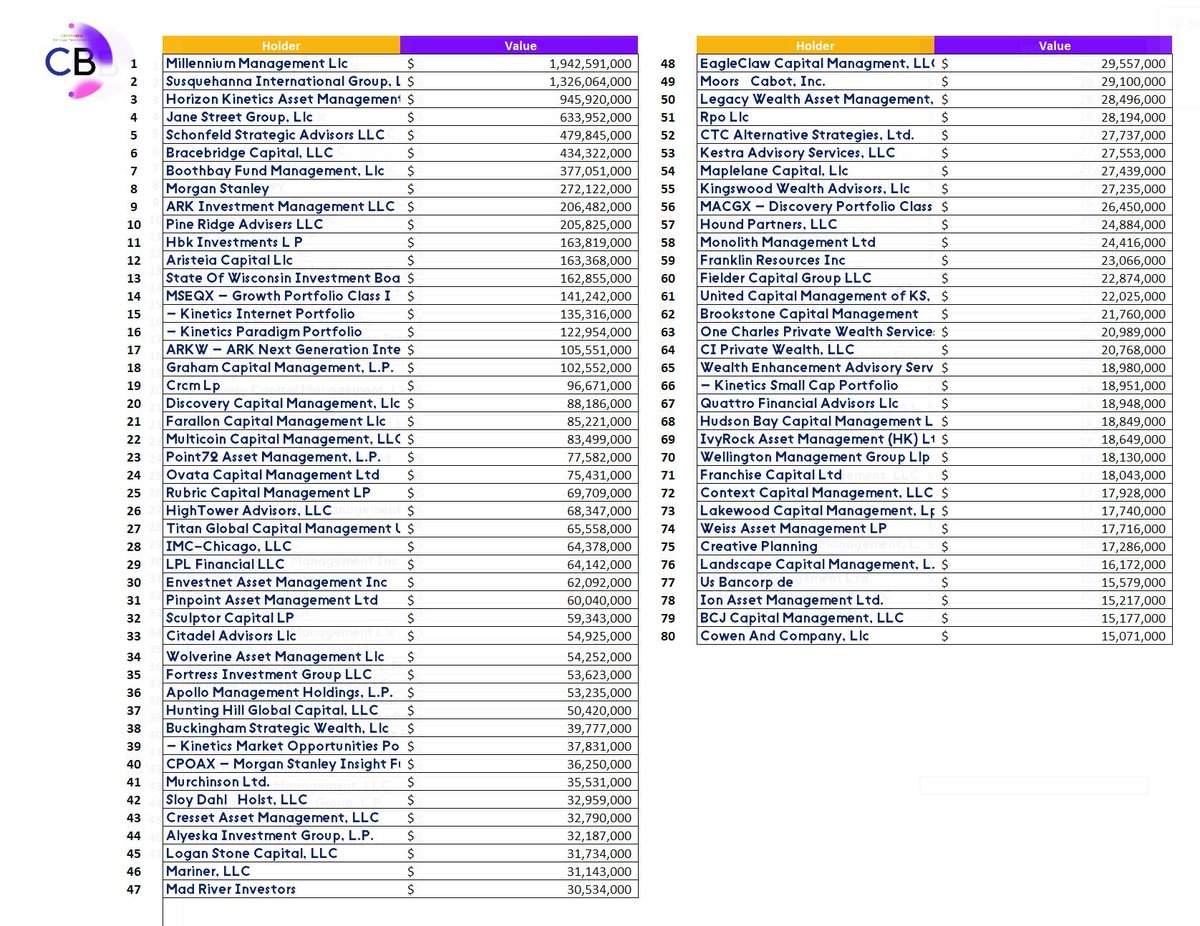Recent analyzes suggest that a significant portion of capital flows into Bitcoin exchange-traded funds (ETFs) are driven by arbitrage strategies rather than direct investments from retail traders.
Raoul Pal, CEO of Real Vision, notably Underlines this trend is based on data regarding the ownership and trading patterns of these funds.
Institutional involvement and market movements
Raoul Pal, CEO of Real Vision, highlighted the predominance of arbitrage activities in the current context. Bitcoin Spot ETF environment. His observations are supported by analyzes indicating that around two-thirds of net inflows can be attributed to arbitrage operations, particularly among the largest companies. institutional holders of these funds.
After examining the behavior of the largest holders Bitcoin spot ETFs in the United States, it is clear that hedge funds and large institutional investors play a central role.
Data shared by Tom Dauvley, managing partner at MV Capital, shows that the top 80 holders, mainly hedge funds, manage assets amounting to approximately $10.26 billion out of a total of $15.42 billion in assets. net inflows, representing a significant concentration of market power.

Millennium Management is the largest single holder, with investments spread across multiple ETF issuers, including top names such as Bitwise, Grayscale, Fidelity, BlackRock, ARK and 21Shares.
According to Pal, the nature of these capital inflows is mainly oriented towards arbitrage. ETF arbitrage involves capitalizing on price differences between the net asset value of the ETF and the price of the underlying Bitcoin.
Despite these observations, debate rages over how arbitrage influences overall ETF flows. Some market participants, like Joseph B., a crypto trader, say arbitrage could account for less than 15% of total flows when considering the broader spectrum of U.S. Bitcoin ETFs, which collectively manage more than $42 billion. dollars of assets.
Hmmmm, I don’t necessarily agree. Excluding GBTC, there are 605,000 BTC ($42 billion) in ETFs
Short interest on the CME (the only place where institutions would do their basic trading?) has around 91,000 BTC shorts ($6 billion).
Recent influxes could certainly be attributed to…
– Joseph B (@Packin_Sats) June 11, 2024
Arbitrage Dominates the Bitcoin ETF Landscape
Currently, the BTC price is at $69,523, following a recent 3.5% rise in the last 24 hours. CPI report indicating a slowdown in inflation in the United States. Notably, this performance of BTC marks a recovery after a week-long drop in value.
Before this price change, US Spot Bitcoin ETF saw significant net outflows, with a total of $200 million withdrawn on Tuesday, continuing a trend from earlier this week that ended a streak of net inflows.
Grayscale’s Bitcoin Trust (GBTC) saw the highest withdrawals of around $121 million, while Ark Invest’s ARKB reported $56 million in net outflows.
Data from SoSoValue also shows that Bitwise’s BTC ETF (BITB) saw an outflow of $12 million, and Fidelity and VanEck noted lower single-digit outflows. Meanwhile, BlackRock’s IBIT reported no net flows that day.
So far, the streak of continuous net inflows into the 11 U.S. spot Bitcoin ETFs ended on Monday after 19 days, resulting in outflows of nearly $65 million. Since their inception in January, these ETFs have accumulated net inflows totaling $15.42 billion.
Featured image created with DALL-E, chart from TradingView


